May 2024, Gro(e)ningen
Wednesday morning, 22 May, a number of BUFFER+ partners from the Groeningen region gather. Today, they will go on an expedition along various companies in the 'food chain' in the region. These are professionals from Westerkwartier municipality, Midden-Groningen municipality, Hanzehogeschool, and the Province of Groningen. In addition, two students from Terra's agriculture school joined in. The aim of the expedition: to gain insights. What are the owners of (agricultural) businesses up against and what are their dreams? How does the chain see the future towards 2050? Insights that are important for BUFFER+: new business models, peatland restoration and governance.
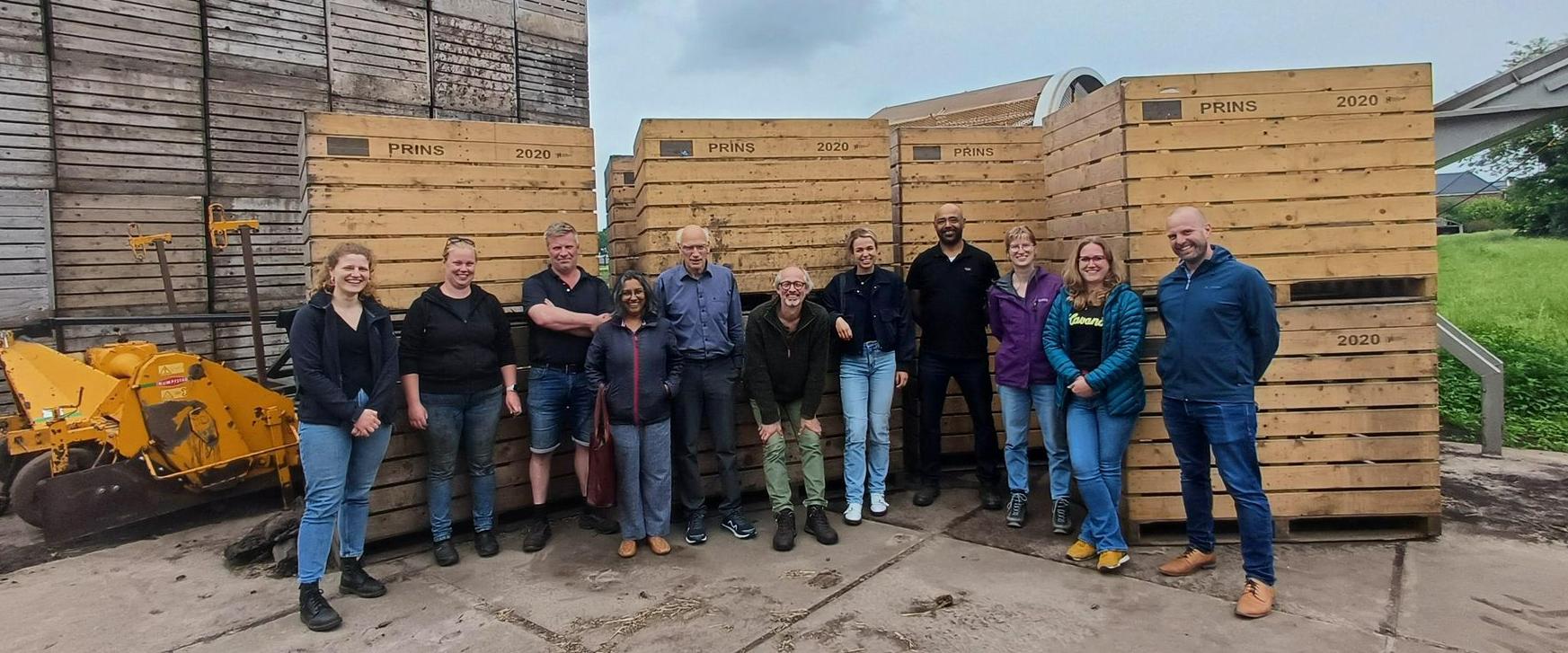
Albert Heijn, village in Central Groningen | Nationwide supermarket chain | Hosted by the two owners
With the fragrant coffee that arrived on the table, a fact was communicated: ''Perla has the largest coffee private label factory in the Netherlands,'' the owner informed. The couple started the supermarket franchise in 2018 in this village in the municipality of Midden-Groningen, a location not everyone was confident about. Nevertheless, they have been successfully running the supermarket for six years. ''My dream? That is to sell good products, at a good price,'' says the owner.
Challenges
Supermarket regulations are constantly changing. The guidelines around sustainability have been pushed forward by several years, which has a big impact on supermarket remodelling and when it is approached. Many supermarket owners quit because they cannot bear the high renovation costs or because of increased aggression among customers. Competition and lack of clarity in laws and regulations are also reasons for some to quit.
To get local products in the AH
What emerged from the conversation is that many consumers say they think it is important to buy local, healthy and sustainable products, but in practice this is disappointing. The price still determines most in the end.
One problem at supermarkets is that the expiry date on various local dairy products is often only 2-3 days. You can't get these products yourself as a supermarket owner, as it takes too much time if you have to do this for all your products. Farmers are good at farming themselves, and the retail and logistics around this is a profession in itself. There are also strict requirements around certifications and ingredient lists of products before they are allowed in the supermarket. This is often a barrier for farmers. Moreover, the control of all AHs remains with the head office.
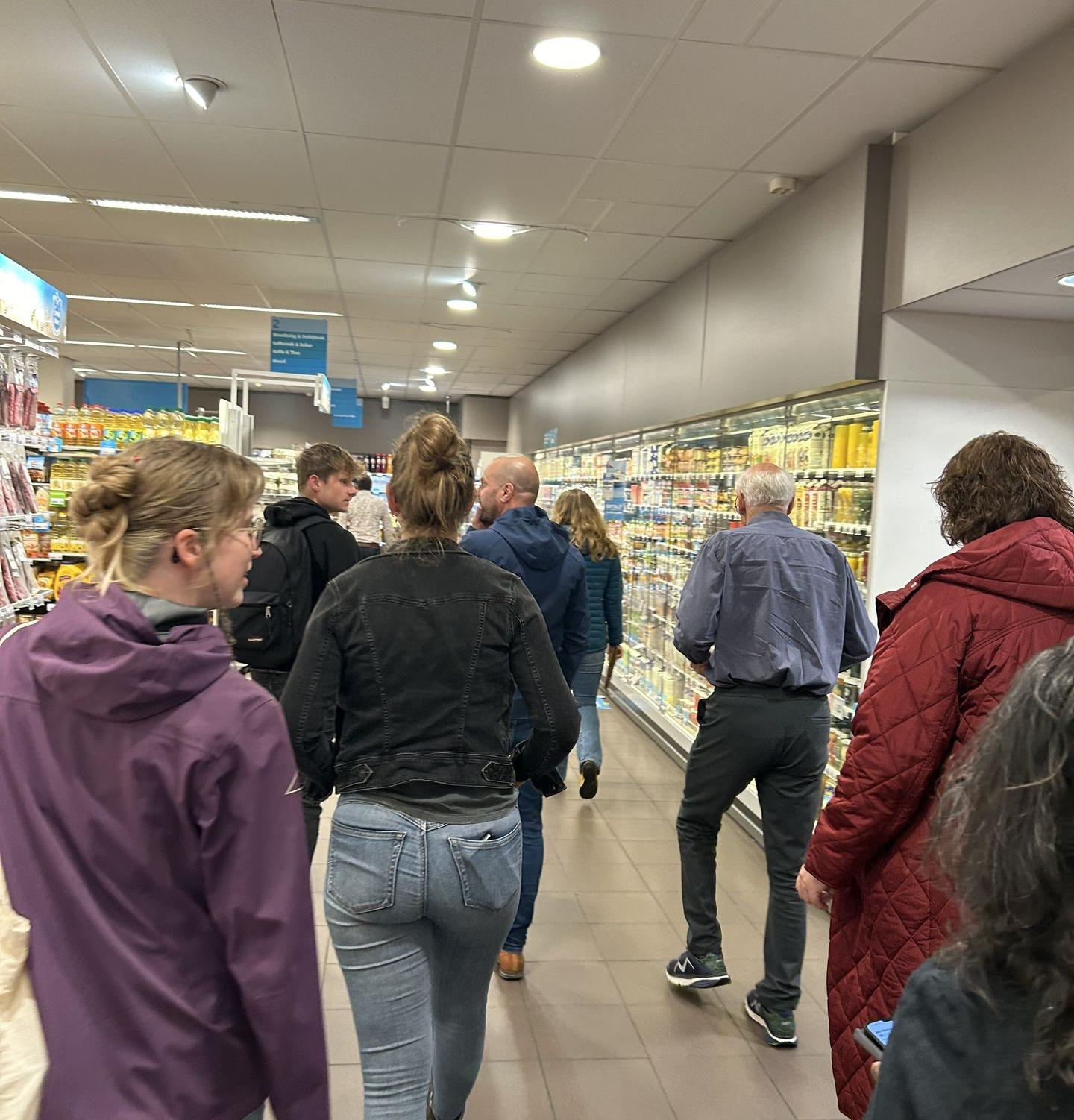
Yet there is also a movement of several farmers moving towards the supermarket and joining forces in this. In this way, logistics can be combined. Moreover, a programme has been created to get products from local farmers to the AH: “de Betere Boer (i.e. the Better Farmer). In this, the AH can also think along with farmers to stand together for the Dutch product.
Moreover, the owners of this AH are users of ''the Lokalist''. This is an app where you can buy products from farmers, delivered in one go. Here, the farmer can set the price himself. Logistics here is also business to business. We will continue the expedition by asking the farmers we will visit today whether they also offer their products through this app.
Dairy farm in Ten Boer
The group was received in a large meeting room at the farm, and took seats at the table with red-blocked rug. The owner, who besides being a farmer on this farm in Ten Boer is also the chairman of the cooperative of dairy farmers in the Northern Netherlands, took the floor. ''What do you want to find out?" he asked after his introduction.
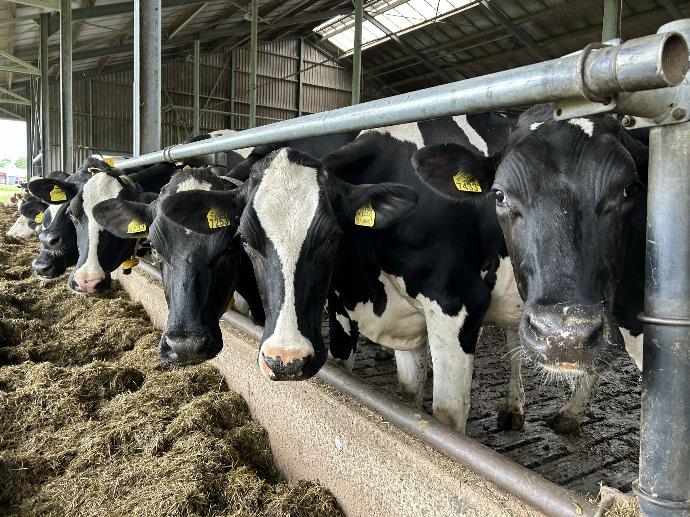
Bringing farmers to consumers
According to him, the animal, in his case the outdoor grazing cow, is the way to engage consumers. Furthermore, farming is just a form of industry and this is a bit further away from the people. This is why he also likes to give information sessions on his farm. Knowledge in villages and cities about farmers is low, but also vice versa.
Noordertrots
Noordertrots (Pride of the North) is an initiative of the cooperative of which the farmer in Ten Boer is the chairman. This has been embraced by the supermarket Poiesz since 2017. This supermarket has advertised this a lot. It is now catching on well with the customers of the Poiesz.
The supermarket Jumbo also tried to sell Noordertrots products for a while. Here, this did not work. The rotation of products was not fast enough, and this cannot be done with daily fresh dairy. Local supermarkets also want to offer local dairy products but expiry dates get in the way of the logistics process enormously.
Changing 'farming'
The owner finds it difficult to see new prospects for farmers. ''Extensification cannot be done with a loan of millions,'' he points out. The mindset of farmers has already changed, besides being farmers they are also nature conservators. But of course, for conservation of nature, money is needed. A revenue model has to be found for this.
Moreover, soil fertility and soil science is not a topic high on the agenda for many farmers. Here, in his view, even in current agricultural education, there is a big gap to fill.
ABN Amro | A bank in the Netherlands | In conversation with two employees
Besides supermarkets and farmers producing products, banks are also important in the chain. After all, they provide loans for farmers, enabling them to realise farm developments.
The group talks to a finance specialist for the agricultural sector and a banker about strategy and sustainability. The bankers see clear distinctions between the types of farmers applying for financing: ''You see farmers who still just want to grow, grow, grow. But, there are also many farmers who take the changing circumstances into account''.
Supporting forerunners
The bank likes to look back at figures, but for new ideas, you should instead look at expectations. ''Without confidence in the returns, we will not finance. But we do take the position that we try to support precursors as long as there is confidence,'' indicates the finance specialist. If there is already a cash flow, as is often the case with a farm business, then financing in innovation can be easier.
Ideology
For certain sectors, the ABN is reluctant to finance because it is not in line with what they stand for; think of lily farming. Both gentlemen see a future for farmers with fewer livestock, but also mixed farms with nature and livestock. Moreover, an agricultural sector with room for new innovations.
Farmer and entrepreneur, Zuidbroek | In conversation with the owner
From the moment you drive into the yard, you sense, this is a thriving shop. The car park was full of cars on Wednesday afternoon, and groups of people are loading up their cars with products they bought at the farm shop.
The owner welcomed the group with a delicious homemade strawberry cake. The farmer is well known in Groningen, and everyone in the group had heard of it beforehand. The farmer has an arable and a horticultural branch. In addition, there are several farm shops in the province. If you ask him how he got this big company up and running, he says: ''It became big, by keeping thinking small''.
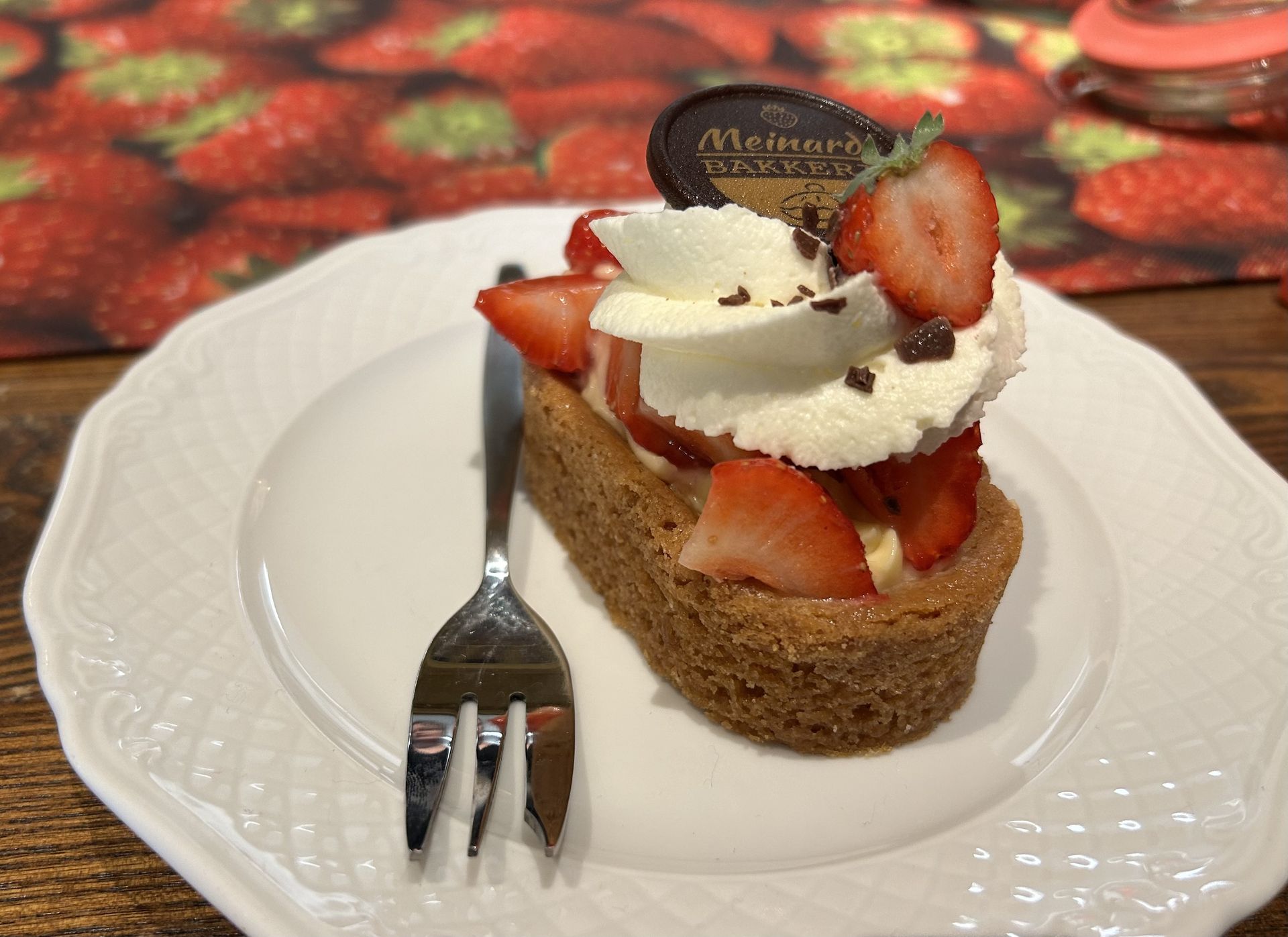
Close to the consumer
The owner has always had the vision of being close to the consumer with his products. In doing so, he applies the rule that there should be a maximum of one link in between, which means that the farmer does not collaborate with wholesalers and cooperatives. In many cases, he himself is the chain for his products, from production to ready-made meals in the shop. ''You want to offer the consumer something, of which they think 'for this I will go to this farmer,'' he says.
Products
Not everything has always worked out, sometimes you try something as an entrepreneur that doesn't catch on. This was the case with blueberry and raspberry production. Things that did work turned out to be strawberries and asparagus. The biggest threat to produce? ''That is undoubtedly the weather,'' the owner reveals.
Perspective for farmers
Farmers face new regulations all the time, leaving little perspective. However, the equity position is often good, so have and keep faith.
The owner looks at the future a year at a time, as the world is changing rapidly. The dot on the horizon is getting shorter and shorter. Where you used to be able to make a five-year plan, it is now a one-year plan. What is not going to change is that the farmer will continue to focus on the local market. ''That hauling of food, that could be less''.
Organic arable farm, village in Central Groningen | Hosted by owners father & daughter
The group arrives at the last address, the organic arable farm. ''Just put your car a bit further away in the yard, so there is still room for the farm shop customers in front,'' says the owner on arrival.
Cultivation
More than 10 different crops are grown on this farm. From valerian to pumpkin and from celeriac to peas. Multiple crops, with the idea that you are then less vulnerable as a producer. Moreover, you have a more spread out harvesting period because of the different crops. Indeed, on a farm with 140 hectares, a non-dispersed harvest is not doable.
Organic
Why the decision to go organic? ''I didn't think it was healthy to be dependent on the big buyers. And being naturally organic has hindrances, but in dependency benefits,'' the owner indicates. Moreover, he indicates that the price for organic produce is more favourable AND the crop options are wider.
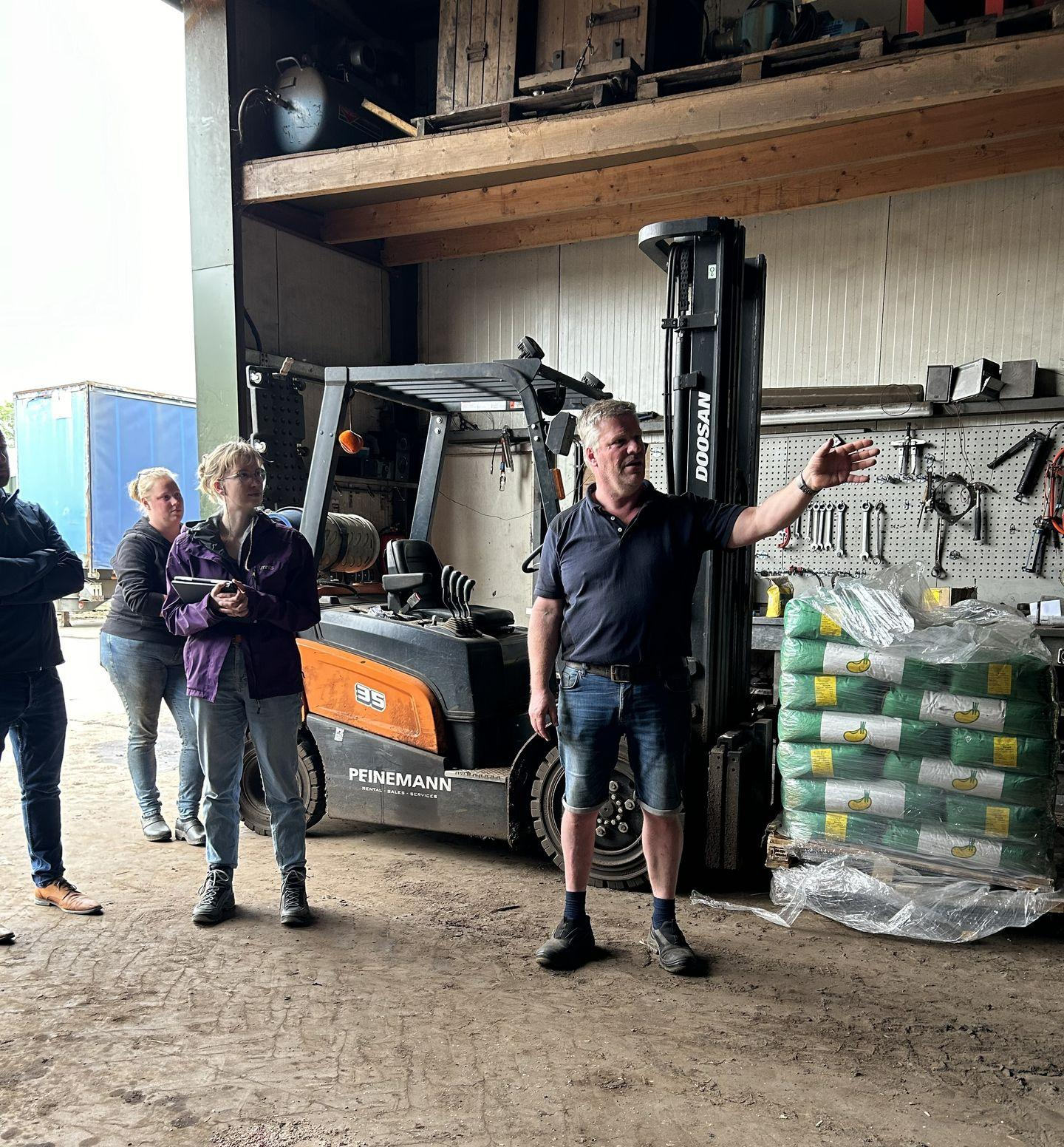
Labour intensity
As an organic farmer, you still do a lot yourself. For instance, the logistics processes of getting produce to shops and customers come down to them. As many as three times a week, different rounds are driven by family members, which takes at least half a day. All in all, running this farm is very intensive. ''Just think of working weeks of between 60 and 80 hours, minimum''.
Future dreams
Meanwhile, three daughters also work on the farm and four seasonal workers are employed. This daughter is more into animals, so she has acquired some dairy sheep. The dairy is still in its early stages, so the next step is to get dairy farming going, though. Moreover, a dream of the family is to get even shorter lines with local customers, partly by scaling up their own farm shop.
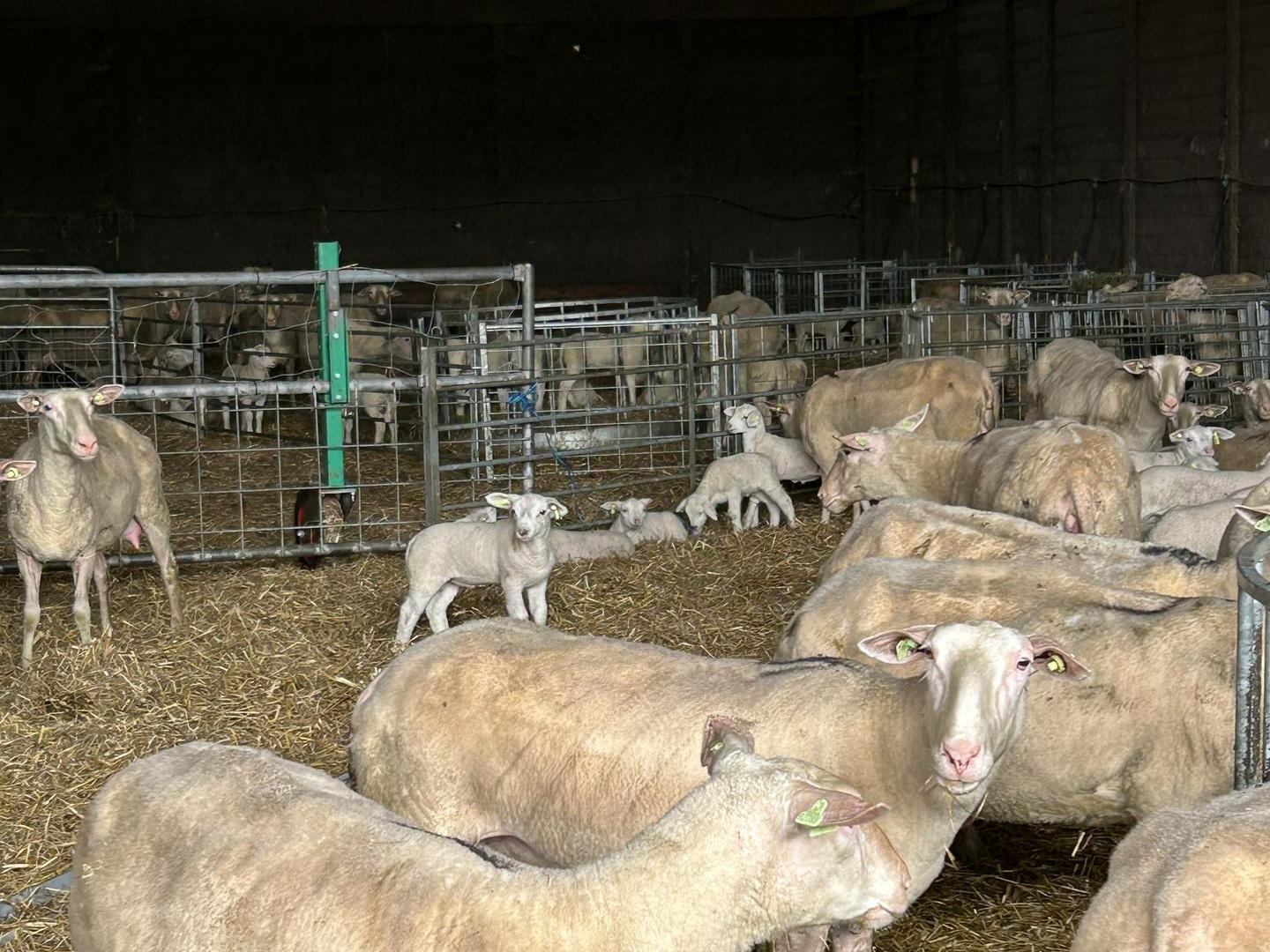
For the Dutch partners of BUFFER+, this expedition was full of inspiration. Through discussions with various farmers, supermarket owners and agricultural bankers, all sides within the chain from farmer to consumer were highlighted. What are each person's dreams for entrepreneurship in the future? This will serve as a basis for experiments around new earning models in the peatlands. ■